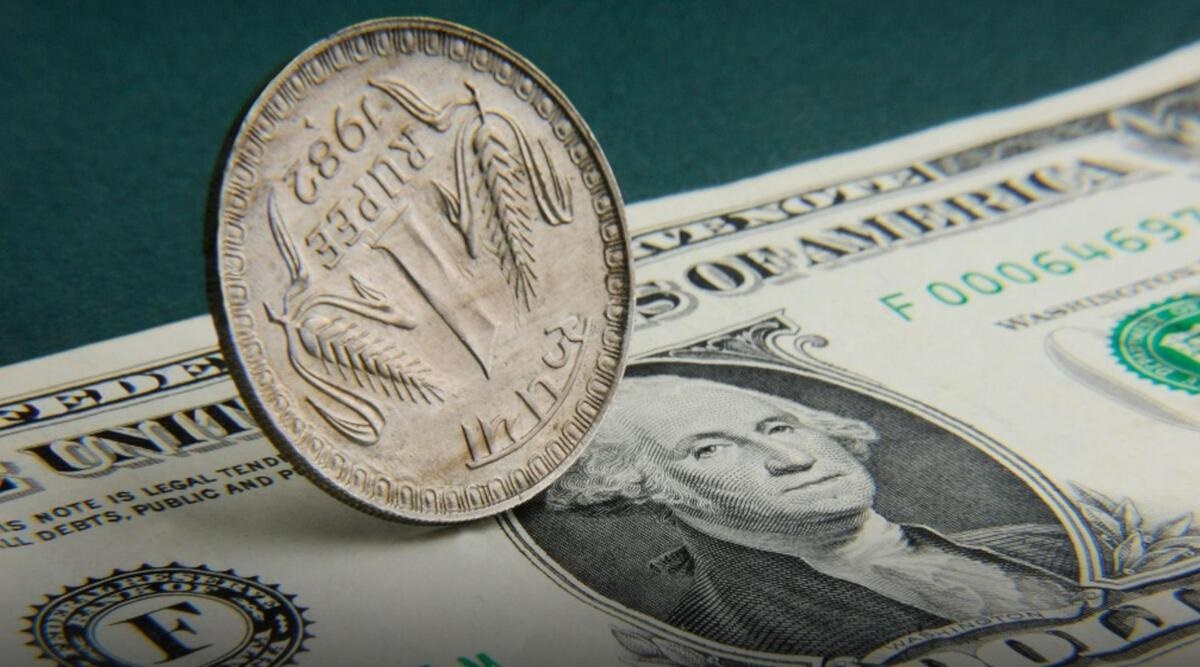
On the one hand, where the stock market has been bullish for two consecutive days after a fall of six days, the Indian currency is not taking its name to stop falling in the rupee. It has been declining steadily since hitting its all-time low in the past. The rupee touched a new record low against the dollar on Tuesday. At the time of writing the news, the rupee had fallen by 14 paise to 77.69.
Indian currency falling fast
Earlier on May 9, 2022, the biggest fall in the Indian currency was recorded so far. When it fell 52 paise to 77.42 against the dollar. Since then, it declined further and reached a lifetime low of 77.55 on Friday. After this, there has been a big decline once again and this record has come down to 77.69 against the dollar. According to the report, the rupee has depreciated 65 paise every week due to the strong dollar index, risk-off sentiment, and foreign fund outflows. However, experts believe that due to the steps being taken by the Reserve Bank of India (RBI), the depreciation of the rupee is expected to be in a limited range.
Forex reserves continue to decline
Let us tell you that the country's foreign exchange reserves are also decreasing continuously, it had come down to below $ 600 billion for the first time in the past. It has been declining for nine consecutive weeks. Forex reserves declined by $2.695 billion to $597.73 billion in the week ended April 29. Whereas in the week ended May 6, it declined further and stood at $ 595.954 billion. During this period, FCA declined by $1.968 billion to $530.855 billion.
There will be a big impact on the common man
The rupee reaching an all-time low against the dollar will have an all-around impact on the country's economy. The biggest hit will be on the import bill as India imports about 80 percent of its crude oil needs. In such a situation, due to the fall of the rupee, the import bill of crude oil will increase and foreign exchange will be spent more. Apart from this, the difficulties will also increase on the rising inflation front. Also, fertilizers and chemicals of which India is a big importer will become expensive due to the depreciation of the rupee. Apart from this, electronic goods to jewellery will become expensive.
Teaching and traveling abroad will be expensive
The prices of crude oil, gold, and other metals in the international market are fixed in dollars. In such a situation, due to the deteriorating condition of the rupee, we will have to spend more foreign exchange to buy them. Petrol and diesel prices will also increase in the domestic market. At the same time, due to the fall in the rupee, it will become expensive for Indians to study and travel abroad. Due to this big fall in the domestic currency, the same education abroad will now cost 15 to 20 percent more than before.
Following a volcanic eruption in Ethiopia that had been dormant for nearly 10,000 years, a plume
On the petitions filed regarding the Special Intensive Revision (SIR) of the voter list in Bihar,
The information about the attack on Saif Ali Khan has shocked everyone. Late night, the thief bro
One person died in the first monsoon rain in the national capital due to the failure of various a
India's young T20 star opener Abhishek Sharma praised Gautam Gambhir after the hosts defeated Eng
India-UK FTA: India and UK can sign FTA this year, Commerce Secretary said this
India and UK may sign Free Trade Agreement (FTA) this year as both countries have reached a conse
It has been 17 years since Taarak Mehta Ka Ooltah Chashmah, but even today this comedy show is nu
After the recent change of power in Maharashtra, now the Eknath Shinde faction has started speaki
German Foreign Minister Annalena Bayerbach has described India as a natural partner of Germany. H
Italy's first right-wing prime minister, Giorgia Meloni, has been embroiled in controversy just t